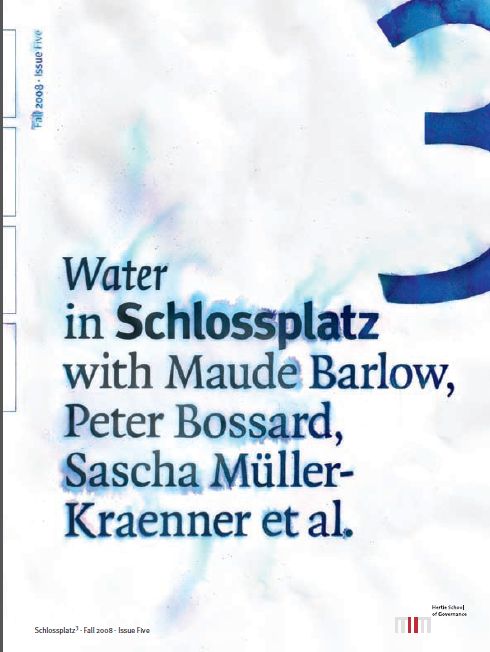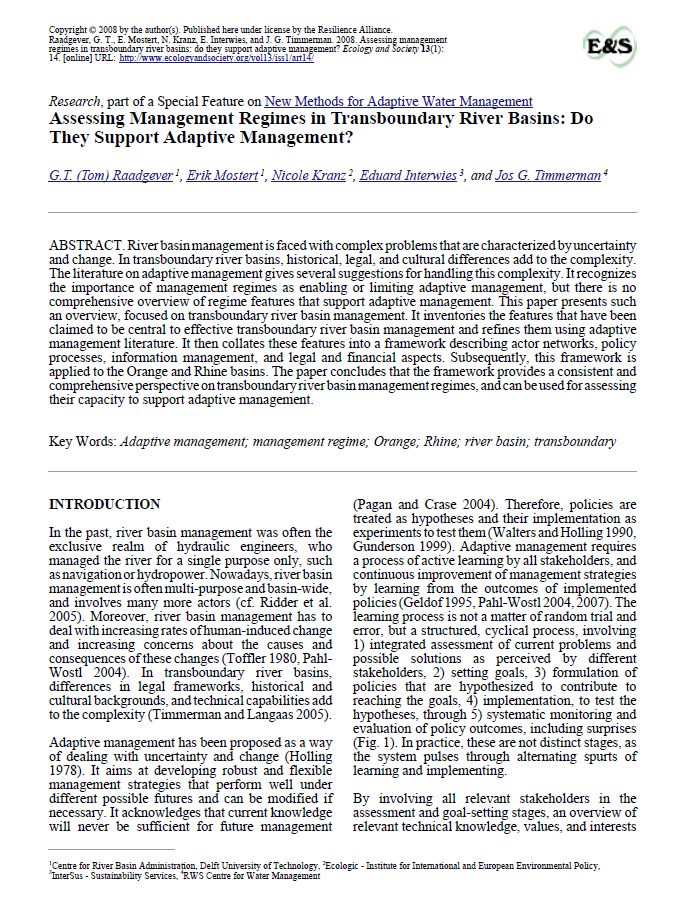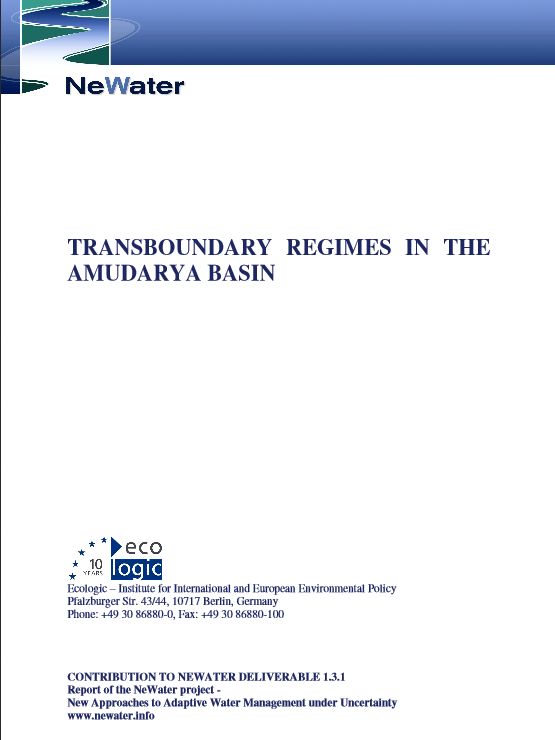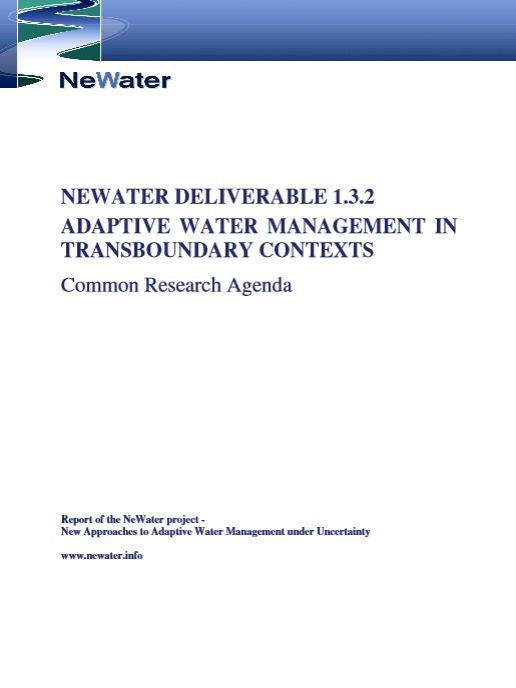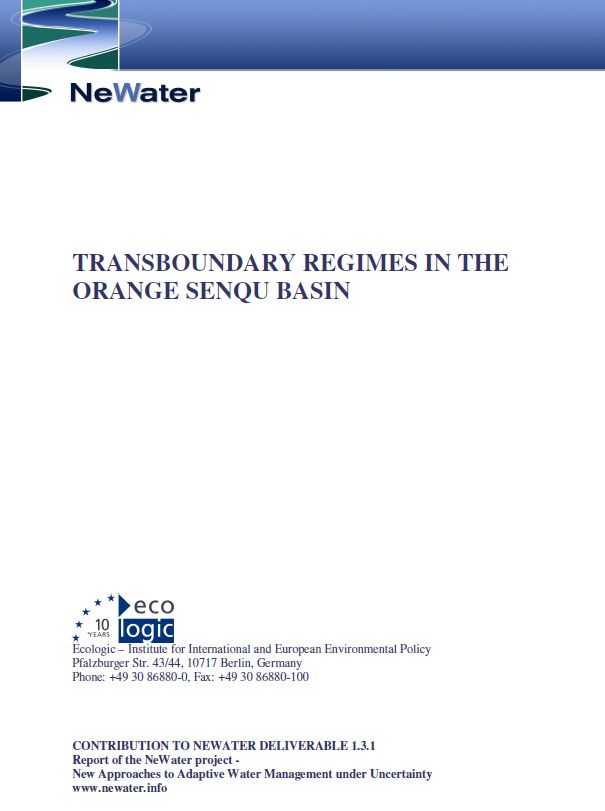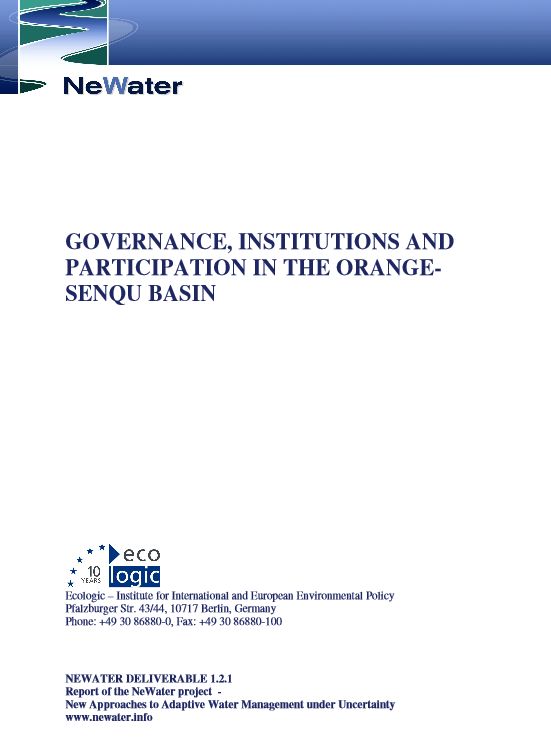New Approaches to Adaptive Water Management under Uncertainty (NeWater)
- Project
- Research Program
- Duration
-
-
Water management is influenced by many different factors. Current water management strategies are often not designed in a way to adequately accommodate and react to changing boundary conditions, such as climate change, new economic, social and political circumstances. The NeWater project aims at developing new approaches for an adaptive and more flexible management of water resources under uncertainty.
Main objectives
The central tenet of the NeWater project is a transition from currently prevailing regimes of river basin water management into more adaptive regimes in the future. This transition calls for a highly integrated water resources management concept. NeWater identifies key typical elements of the current water management system and focuses its research on processes of transition of these elements to adaptive IWRM. Each key element is studied by novel approaches. Key IWRM areas where NeWater is expected to deliver breakthrough results include:
- Governance in water management (methods to arrive at polycentric, horizontal broad stakeholder participation in IWRM).
- Sectoral integration (integration of IWRM and spatial planning; integration with climate change adaptation strategies, cross-sectoral optimisation and cost-benefit analysis).
- Scales of analysis in IWRM (methods to resolve resource use conflicts; transboundary issues).
- Information management (multi stakeholder dialogue, multi-agent systems modelling; role of games in decision making; novel monitoring systems for decision systems in water management).
- Infrastructure (innovative methods for river basin buffering capacity; role of storage in adaptation to climate variability and climate extremes).
- Finances and risk mitigation strategies in water management (new instruments, role of public-private arrangements in risk-sharing).
- Stakeholder participation;
- promoting new ways of bridging between science, policy and implementation
Research Approach
The development of concepts and tools that guide an integrated analysis and support a stepwise process of change in water management is the corner-stone of research activities in the NeWater project. To achieve its objectives the project is structured into six work blocks, and it adopts a management structure that allows effective exchange between innovative and cutting edge research on integrative water management concepts, with practical applications and testing through participatory stakeholder processes in selected river basins.
River basins selected as case studies for the NeWater projetct include:
- the Rhine,
- the Elbe,
- the Tisza,
- the Guadiana,
- the Nile,
- the Orange, and
- the Amu Darya.
Contribution of Ecologic
As one of 40 partners in the NeWater consortium Ecologic focuses its research on the analysis of transboundary aspects of adaptive river basin management. This includes an overview of current research and developments as regards the influence of information management as well as the implications of institutional structures on water management regimes in transboundary river basins.
Results so far include the following reports on water governance in selected transboundary basins:
- Water Governance, Institutions and Participation in the Orange-Senqu Basin [pdf, 1.1 MB, English]
- Transboundary water regimes in the Amudarya basin [pdf, 784 KB, English]
- Transboundary water regimes in the Orange-Senqu Basin [pdf, 880 KB, English]
Ecologic also assists the NeWater research teams, which are operating in the case study basins, with the more practical application of the conceptual approaches developed in the context of the project. Ecologic has designed a common research agenda [pdf, 656 KB, English] for this field research highlighting the challenges in transboundary water resources management. Based on the case study results, Ecologic will develop innovative approaches to transboundary water management in order to increase water managers‘ preparedness for upcoming challenges.
Ecologic’s activities in this area will focus on the Amudarya and the Orange/Senqu basins. Read more on the activities of Ecologic in the Amudarya case study in May 2006.



